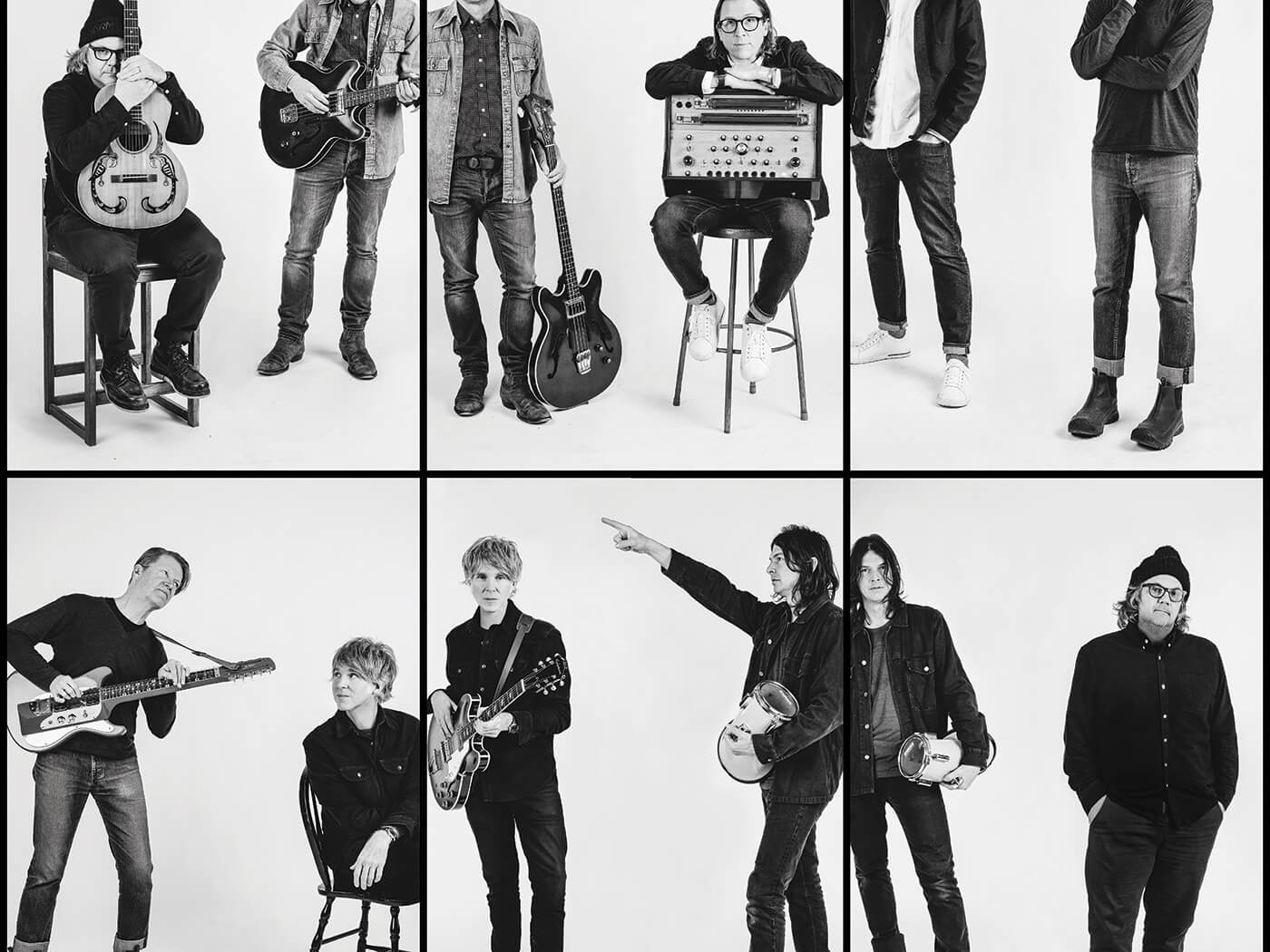After the amiable twang of their 1995 debut A.M. and the more ambitiously conceptual rock’n’roll of 1996’s Being There, Wilco went straight-up pop on 1998’s Summerteeth, trading the pedal steel for an orchestra and treating The Beach Boys as their new Gram Parsons. Country, even alt.country, was far too restrictive, too conservative both musically and culturally, for many bands identified with that movement, and some of the biggest acts – The Old 97s, Joe Henry, The Jayhawks – were toying with power pop and art rock. Few, however, went as far or as hard as Wilco, who by the 2000s were embracing noise and krautrock to capture something essential about America at the turn of the century.
It’s probably a coincidence that the upcoming 20th anniversary of Wilco’s 2001 breakout album Yankee Hotel Foxtrot is preceded by a new studio album that gets back to their country roots. While it’s still a far cry from anything coming out of Nashville at the moment, Cruel Country is self-consciously grounded in classic country music and old-time folk – two styles that influenced Jeff Tweedy’s earliest music 30 years ago, first with Uncle Tupelo and then with Wilco. Yet it’s not that far removed from their recent Ode To Joy, partly because their idea of country is expansive. Emphasising acoustic instruments and relatively austere arrangements, it encompasses the CSNY harmonies on “A Lifetime To Find”, the two-step rhythms underpinning “Falling Apart (Right Now)”, the string-band plucks of “Sad Kind Of Way”, and even the bucolic psychedelia of the eight-minute epic “Many Worlds”.
Fittingly, the members of Wilco gravitated toward the country setting organically. Cruel Country arose from informal jams at The Loft in Chicago, with the musicians picking up instruments they’d been neglecting recently: acoustic guitars, pedal steel, dobro. There are still electric guitars, but they’re played more in the style of The Buckaroos than Can or Nilsson. Because they found themselves obsessed with this particular palette, they put aside the more “traditional” Wilco album they’d been making and devoted themselves to pursuing this very particular sound. And because Tweedy was incredibly prolific during the pandemic, they found themselves with enough songs for a double album.
Cruel Country sounds like a band playing first and foremost for and to themselves, which means there’s a zippy energy to these songs, even the slower, sparser ones like “The Universe” and “Tonight’s The Day”. It’s invigorating to hear these musicians question how their instruments fit within the songs and rethink how Wilco does what Wilco does. “The Empty Condor” creeps along on Mikael Jorgenson’s muted piano rhythm, which adds a sense of menace and movement to the verses. The song is all push-and-pull: the lightness of Nels Cline’s guitar solo is undone by Tweedy holding his notes just a bit longer than his voice can go. That friction is all the more unsettling for being so understated.
No-one in the band seems to be questioning their role quite as much as Tweedy himself, whose vocals sound nuanced and expressive – acutely alive to the subtleties of emotion his lyrics convey. That’s clearest on the time-stopping “Ambulance”, a harrowing tale of a near-death experience. Its fractured imagery sits uneasily in this country setting: “Once just by chance, I made a friend in an ambulance”, he sings over a gently picked bluegrass guitar line. “I was half man, half broken glass”. He sounds like someone who just got back from a brief stopover in the afterlife, and the placidity of the music evokes the painful fragility of life.
Of course, “country” on Cruel Country refers not just to a musical setting, but to a larger idea prickly with political and cultural implications. Wilco explore that duality most explicitly on the title track, which makes even the dissent of Ode To Joy sound tentative. This song is angrier, animated by a relatable outrage at a particularly American divide: “I love my country, stupid and cruel, red white and blue”, Tweedy exclaims. It’s about performative righteousness, but Wilco complicate it by implicating themselves in the prevailing discord. When Tweedy sings, “All you have to do is sing in the choir”, it’s easy to imagine a red-state strawman, at least until he adds, “… with me” to the end of that declaration.
Cruel Country is so thoroughly a Wilco album that even diehard fans might wonder if that twang wasn’t there all along. In addition to redeeming A.M., which no longer sounds like the band’s least essential album, these 21 songs direct listeners to some relatively dark corners in Tweedy’s songwriting career, such as the dreamy old-time songs on Uncle Tupelo’s March 16–20, 1992 (specifically “I Wish My Baby Was Born”) and his folksier contributions to the supergroup Golden Smog (“Please Tell My Brother”, notably). Moreover, these songs suggest that country music – “a kind of comfort food”, Tweedy says – has always informed Wilco’s music, even when the band actively resisted that label. It’s there underpinning the noise on Yankee Hotel Foxtrot, the migraine jams of A Ghost Is Born, even the self-referential in-jokes on Wilco (The Album). Cruel Country is the rare album that throws everything that came before it into sharp relief – a small miracle for a band 30 years into its run.

